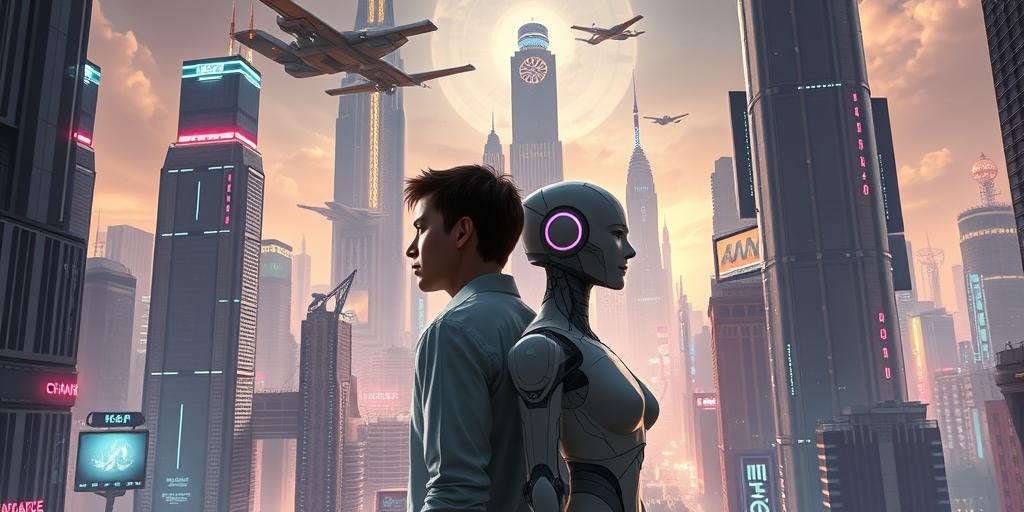The potential of artificial intelligence (AI) to surpass human intelligence is a topic that has captivated scientists, philosophers, and the public alike. From self-driving cars to personalized medicine, AI is already transforming our world in profound ways. But what does the future hold for AI? Will it eventually become more intelligent than humans? This is a question that raises both excitement and trepidation.
The Rise of Artificial Intelligence
What is AI?
Artificial intelligence, at its core, is the ability of a computer or machine to perform tasks that typically require human intelligence. These tasks can include learning, problem-solving, decision-making, and even creativity. AI systems are designed to analyze data, identify patterns, and make predictions. They are becoming increasingly sophisticated, capable of learning from experience and adapting to new situations.
Types of AI
There are different types of AI, categorized by their capabilities. Narrow or weak AI, the most common type, is designed to perform specific tasks like playing chess or recognizing images. General or strong AI, still largely theoretical, aims to possess human-level intelligence and can perform a wide range of tasks. Superintelligence, a hypothetical level of AI exceeding human intelligence, remains a topic of intense debate and speculation.
The History of AI
The concept of AI has been around for decades. Early pioneers like Alan Turing and John McCarthy laid the groundwork for the field. The development of computers and advancements in computing power have fueled the rapid progress of AI in recent years. From the early days of rule-based systems to the rise of machine learning and deep learning, AI has come a long way.
The Limits of AI
While AI has achieved impressive feats, it is important to acknowledge its limitations. AI systems, despite their complexity, are ultimately limited by the data they are trained on and the algorithms they employ.
The Turing Test
The Turing Test, proposed by Alan Turing, is a test of a machine’s ability to exhibit intelligent behavior equivalent to, or indistinguishable from, that of a human. While some AI systems have passed certain variations of the Turing Test, the test itself has been criticized for not fully capturing the essence of human intelligence.
The Chinese Room Argument
The Chinese Room Argument, proposed by philosopher John Searle, questions whether a machine can truly understand language. The argument suggests that even if a machine can pass the Turing Test, it may simply be manipulating symbols without genuine understanding. This argument raises fundamental questions about the nature of consciousness and intelligence.
The Problem of Consciousness
The problem of consciousness remains one of the most challenging mysteries for science and philosophy. While AI systems can mimic certain aspects of human behavior, they do not appear to possess subjective experiences or self-awareness. This raises questions about the nature of consciousness and whether AI can ever truly achieve it.
The Future of AI
The future of AI is brimming with possibilities and challenges. Advancements in AI are impacting various aspects of our lives, from the way we work to the way we interact with the world.
AI and the Job Market
The rise of AI has sparked concerns about job displacement. As AI becomes increasingly sophisticated, it is expected to automate tasks currently performed by humans. This could lead to significant changes in the job market, requiring workers to adapt to new roles and skill sets.
AI and Ethics
The development and deployment of AI raise important ethical considerations. Bias in AI algorithms can lead to unfair or discriminatory outcomes. Ensuring that AI systems are developed and used responsibly is crucial to mitigate potential harm and promote fairness.
AI and the Singularity
The concept of the AI singularity refers to a hypothetical point in time when AI surpasses human intelligence, leading to rapid technological advancements and potentially unpredictable consequences. While the singularity remains a topic of speculation, it highlights the potential for AI to reshape our world in profound ways.
Will AI Ever Surpass Human Intelligence?
Whether AI will ever surpass human intelligence is a question that remains unanswered. While AI has made significant strides in recent years, it is still far from achieving true human-level intelligence. AI systems are still limited by their reliance on data and algorithms, and they lack the ability to understand and experience the world in the same way humans do.
The Importance of Responsible AI Development
As AI continues to advance, it is crucial to develop and deploy AI responsibly. This includes addressing ethical concerns, ensuring transparency and accountability, and fostering collaboration between AI researchers, policymakers, and the public. By working together, we can harness the power of AI for the betterment of humanity while mitigating potential risks.




